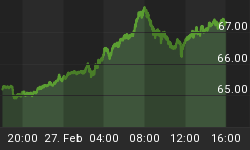The big news this week is Obama's recent 180-degree turn on cutting taxes to help bolster the US economy. There has been talk of extending the tax cuts passed during George W. Bush's first term; or possible structuring a new piece of legislation that would provide some variant of tax relief.
Unfortunately for President Obama, he seems to be caught in a catch-22 on this important issue. Since the midterm elections in November it has become obvious that he will need to cooperate with Republicans, who will control the House come January, despite what he's been saying in recent speeches.
If Obama refuses to acquiesce, the US economy will see very little progress going forward and he'll be headed back to Chicago after his first term. If, on the other hand, he DOES cooperate with Republicans in Congress to provide some form of tax relief to the American people, he will do so at the cost of losing his voting base. What's more, if the tax cuts do encourage business and help the economy, Obama won't be given the credit that will likely go to Republicans. Either way, he'll probably be headed back to Chicago.
Surely by this time White House advisors are telling Obama not only that tax cuts are desired by the American people, but that they are necessary for the US economy to continue its recovery.
The theory among many [leftists] is that during hard economic times, people need to buckle down and sacrifice more for the greater good. The proposed sacrifice is primarily in the form of increased taxes that hopefully allow the government to ramp up spending, keeping business afloat through rough seas.
In reality it's the GOVERNMENT that ought to be making the sacrifice by LOWERING taxes with the hopes of encouraging businesses, which will put people back to work. Lower unemployment should, in turn, support consumer spending, further helping the economy.
Much of the debate lately has centered on the Bush-era tax cuts, and whether they ought to be extended. Readers would do well to think deeply about the circumstances of those tax cuts for a moment.
The "Bush tax cuts" were passed in the early 2000's (2001 and 2003 respectively) very early in Bush's first term. And just what was happening in this country during that time? It was still reeling from the burst of the tech bubble. In fact, the country was struggling to gain footing to pull itself out of the recession caused by the market crash.
Perhaps the most important facet of the Bush tax cuts, given the circumstances under which they were enacted, is that they WORKED. In just five years both the economy recovered tremendously, as did financial markets. In fact, stocks soared to new highs that surpassed even those of the tech boom. This recovery was halted only by the financial crisis that ultimately led to the market crash of 2008 and the ensuing recession.
Given this history, some will undoubtedly feel that the blame for the financial crisis and the current recession from which we are trying to emerge ultimately lie with President Bush (II). However, the reality is that we are really talking about two separate and distinct things.
The financial crisis, it is widely known, was the result not of lower taxes, but of excess debt. As debt was the cause of this mess, it will not likely be the solution as Federal Reserve Chairman Bernanke has suggested with renewed lending.
Rather, fiscal policy dictated by the United States government CAN and SHOULD serve to foster economic growth by encouraging businesses. The all-important question still remains, though, what policies will come out of Washington.















